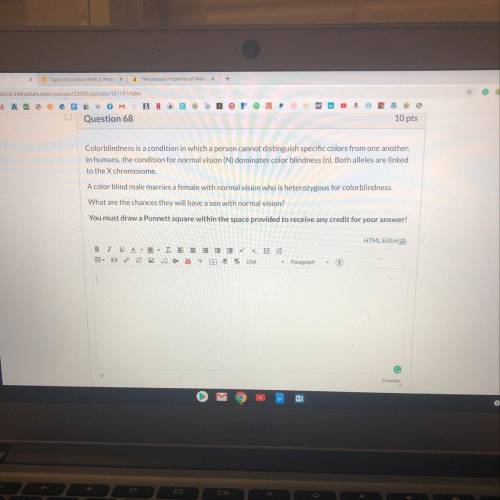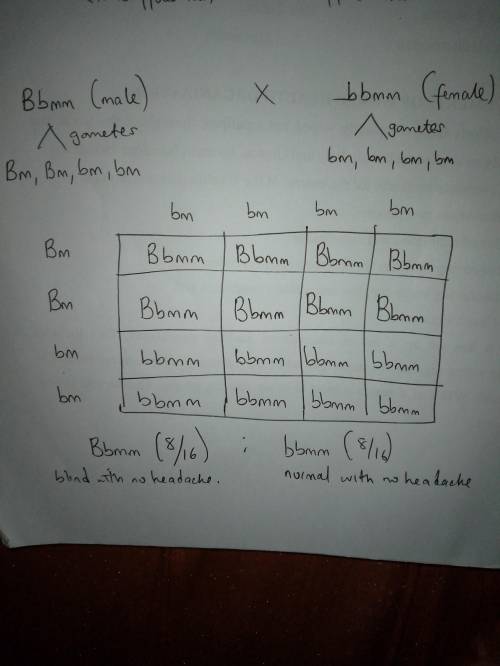
Biology, 12.08.2020 04:01 kaykardash
In humans, a type of blindness is due to a dominant allele (B). Normal vision is the result of a
recessive allele (b). Migraine headaches are due to a dominant allele (M), and normal (no migraines)
is recessive (m).
A male who is heterozygous for blindness and does not suffer from migraines marries a woman who
has normal vision and does not suffer from migraines.
Could they produce a child with normal vision who does not suffer from headaches? If yes, can the
probability of such a child be determined?
You must draw a Punnett square within the space provided to receive any credit for your answer!


Answers: 1


Another question on Biology

Biology, 21.06.2019 19:00
If you are in a chronic state of anxiety but also suffer from moment of sudden, intense fear you are problably suffering. from
Answers: 1

Biology, 21.06.2019 23:00
Use this new information to determine the parents’ genotypes (indicated by red arrows). then calculate the probabilities that the second male offspring will have each condition. drag one pink label to each pink target and one blue label to each blue target. then use the white labels to answer questions 1 and 2. labels can be used once, more than once, or not at all.
Answers: 3

Biology, 22.06.2019 03:30
In pea plants, the allele for inflated pod seed, i, is dominant over the allele for constricted pod seed, i. the punnett square shows a cross for this trait. which offspring will be homozygous dominant
Answers: 2

Biology, 22.06.2019 06:40
Which term describes a normal value for something in the body? a.homeostasis b.set point c.feedback loop d.integration center
Answers: 1
You know the right answer?
In humans, a type of blindness is due to a dominant allele (B). Normal vision is the result of a
re...
Questions


Physics, 18.10.2019 01:30




Mathematics, 18.10.2019 01:30



SAT, 18.10.2019 01:30









Mathematics, 18.10.2019 01:30





